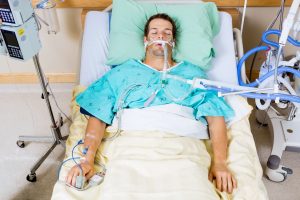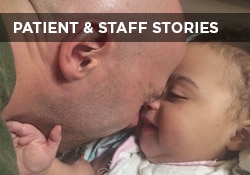This website uses cookies so that we can provide you with the best user experience possible. Cookie information is stored in your browser and performs functions such as recognising you when you return to our website and helping our team to understand which sections of the website you find most interesting and useful.

Susan E. Mazer, Ph.D. Blog
Thoughts and ideas on healthcare
Hi, and welcome to my blog! I'm Susan E. Mazer -- a knowledge expert and thought leader on how the environment of care impacts the patient experience. Topics I write about include safety, satisfaction, hospital noise, nursing, care at the bedside, and much more.
Encore Post: ICU-Acquired Weakness – Powerlessness in Recovery
September 25, 2015
 Note: A busy week, so no new post, but enjoy this encore of one of my most-read posts from 2014.
Note: A busy week, so no new post, but enjoy this encore of one of my most-read posts from 2014.
Recently, The New England Journal of Medicine published an article about ICU-acquired weakness. The authors explore the physiological (neurological) outcomes of having an critical illness, being administered strong medications, being intubated, and otherwise being unable to move.
Nerves atrophy and fail to function normally. The condition is identified as critical illness polyneuropathy.
Some of the symptoms resolve themselves and others are irreversible. What is most stunning, however, is the lack of interest or comment about the patient’s mental, emotional, a psychological outcome from being in the ICU, powerless, weak, and most likely headed for yet more complications.
There is no reference to how immobility impacts the mind or life of the patient.
Earlier this year, I wrote a blog post about ICU-induced PTSD occurring in patients whose stay in the ICU included intubation and painful procedures. Studies show that up to 35% of ICU patients have symptoms of post traumatic stress disorder (PSTD) — including nightmares and phobias — for as long as two years after discharge.
There is no question that ICU-induced PSTD is about the mental, emotional, psychological scars of a traumatic illness and being in the ICU. Now, we have ICU-acquired weakness.
When a person becomes a patient, his or her life changes. However, the change begins long before entering the hospital and continues long after discharge.
It begins when an individual is notified that he or she might have a physical condition over which he or she has little if any control. Then, he or she is subjected to the whim of medical science, the hospital staff, and his or her condition.
Just thinking about it changes a patient’s sense of self — the identity from which everything else flows.
If you think about the physical environment of care and its impact on the patient experience, you can see how it might contribute to disorders like ICU-acquired weakness and ICU-induced PSTD. For example, what if we put premature infants in a cardboard box?
Frail infants need softness and swaddling to feel secure. The sensory deprivation of a cardboard box would surely create developmental challenges by risking the infant’s failure to thrive.
When I read about ICU-acquired weakness and ICU-induced PTSD, I feel that we are compelled to create and design memories for patients. Even intubated patients can hear, and what they hear while in that hospital bed becomes who they are while they are there and long after.
Using patients’ hearing to tell them what is happening, we can provide auditory swaddling. We can comfort and engage with life beyond the breathing tube down their throats.
Healing HealthCare Systems often get letters, emails, or phone calls from ICU patients who tell us how much The C.A.R.E. Channel meant to them while in the hospital. They tell us that seeing the best of nature gave them something to hold on to and the music comforted them.
These communications are sometimes right from the bed or during the first days following discharge. Or one year or more later as they relive what happened to them.
The person in the room — whoever it may be — is the one to do the swaddling, comforting, and reassuring. To patients, the people working in the hospital that enter their room are assumed to carry the mantel of healing. Florence Nightingale was relentless in her demand that anyone to whom the health of another is entrusted exercise his or her own capacity to provide comfort.
Creating memories and designing experiences and environments that relieve emotional, as well as physical suffering can dramatically change how patients recall and relive what happened to them in the hospital.
I look forward to a study that identifies ICU-acquired HOPE.
P.S. If you like this post, please do me a favor and share on LinkedIn, Twitter, Facebook, etc. Also to get automatic notices when a new post is published, subscribe (upper right). No spam – just great content. Thanks!










